Dr. Christian Tutschku, Project and Team Leader Quantum Computing at Fraunhofer IAO
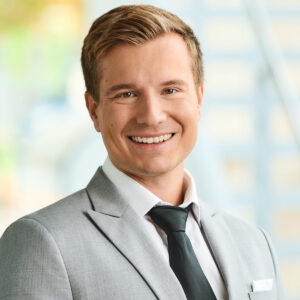
What QC and AI experience do you provide?
"At Fraunhofer IAO, I am leading the Quantum Computing team. We belong to the Digital Business research unit, which has broad expertise in the field of QC and AI with us and the department of Artificial Intelligence and data-based automation. I have a degree in physics and a PhD in Theoretical Solid State Physics and quantum computing. In AutoQML, we combine our expertise in quantum computing and algorithm development with our expertise in Theoretical Solid State Physics, Machine Learning and Artificial Intelligence. Beyond that, we bring our practical experience with the IBM Quantum System One to the development of the QML algorithms."
What is your specific role in the project?
"Fraunhofer IAO is entrusted with the overall management of the AutoQML project and takes the scientific lead in addressing issues that arise during the project."
What added value do you expect from the project content?
"AutoQML makes a significant contribution to the future integration of quantum computing into classical ML processes, which are currently still cost-intensive and time-consuming. To realize this ambition, the project is developing platforms, tools and methods for the economic integration of quantum applications. By developing hybrid software solutions, conventional computers and QC systems are combined in ML. Companies can identify novel strategies and methods for their application problems and are enabled to use quantum computing specifically to their advantage. AutoQML is an open project and adds value to the entire QC ecosystem by making the project results available on the platform PlanQK."
Dr. Marco Roth, Team Leader Quantum Computing at Fraunhofer IPA

What QC and AI experience do you provide?
"Our team already has a lot of experience in research around Machine Learning and quantum computing, exactly the two core topics of the AutoQML project. We develop quantum-based methods for mathematical optimization and machine learning, among other things, and test how the combination of both can be usefully embedded in industrial application processes. One application area, for example, is hydrogen technology. For electrolysers, we develop lifetime analyses or conduct materials research."
What is your specific role in the project?
"For us, this project focuses on theory and method development around the combination of quantum computing and AutoML. The great thing about AutoML is that users need less knowledge than with classical Machine Learning because they are supported by more automation in the application. Incorporating quantum-based ML methods into this framework allows low-threshold access to this future technology. However, it is necessary to work out exactly the advantages of QML and to validate when AutoML is sufficient and when AutoQML is useful."
What added value do you expect from the project content?
"It is important for us to advance research on quantum computing and its potential. In cooperation with our partners, we also strive to test AutoQML in practical applications in industry. In this way, we would like to better understand the potentials, but also the limitations of QML compared to classical AutoML, and open up corresponding options for action for companies."
Peter Schichtel, Data Scientist at IAV GmbH Ingenieursgesellschaft Auto und Verkehr

What QC and AI experience do you provide?
"I am a Theoretical Particle Physicist and at IAV I am involved in Machine Learning research, mainly for time series such as engine control unit data or sensor data. IAV also does this together with DFKI (short for: German Research Center for Artificial Intelligence), where I am responsible for our Transfer Lab. In the field of quantum computing, I worked at DFKI a few years ago on how you could represent a neural network with a quantum computer for ML, for example, and whether this also works for time series."
What is your specific role in the project?
"At IAV, I am responsible for the AutoQML project and thus also for coordination with the project partners. My role includes documenting and determining the project roadmap and project development at IAV. To do this, I work with our data science teams as part of the implementation and am also involved in programming."
What added value do you expect from the project content?
"A key added value is to be "ready" for the quantum computer. Do we know how to get what onto the quantum computer and how much? And is our infrastructure, data science pipeline and landscape ready for it? The added value is that we can use quantum computing without development, if desired by the customer. Another added value is that these things are integrated and tuned into our Data Science TeckStack."
Khaled Al-Gumaei, Senior Data Architect IoT at KEB Automation KG
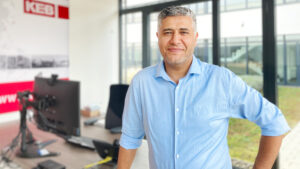
What QC and AI experience do you provide?
"I am primarily a Data Architect and my role is to design and develop the company's data policies and infrastructures. However, since I work closely with data analysts, I have a basic knowledge of AI and Machine Learning, especially in terms of analyzing Industrial IoT data. Regarding quantum computing, I would say that I only have a theoretical background so far. However, I am very excited about the opportunity to put the theory I know into practice in the AutoQML project."
What is your specific role in the project?
"My role in the project is to set up a data platform for the collection, transfer, storage and management of the AGILOX data and to ensure that this data is prepared and available for the AutoQML data scientists. I also translate business requirements provided by KEB experts into technical requirements for data analysis. Later, I coordinate and implement the integration of the developed solution into the KEB Ecosystem."
What added value do you expect from the project content?
"The solutions developed in the project can be used to overcome the challenges of current AutoML approaches and to simplify access to QML methods. This can enable smarter functionalities of AI models. In KEB's use case, we expect to provide a solution for faster detection of new patterns and faults in the transportation system, thereby optimizing in-house logistics and maintenance operations and reducing costs. We believe our participation in this project provides a good opportunity to advance digital sovereignty and secure competitive advantages."
Dr. Daniel Basilewitsch, Quantum Computing Scientist at TRUMPF SE + Co. KG
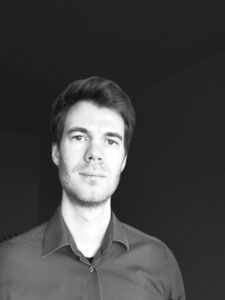
What QC and AI experience do you provide?
"Together with my colleagues from the Quantum Applications Group at TRUMPF we have extensive knowledge of quantum computing and machine learning. In the area of quantum computing, TRUMPF is already active for several years to fathom the application potential of this important future technology. To this end, we are active in the PlanQK project and as a member of QUTAC, a consortium of leading German companies with the common goal of promoting industrial applications of quantum technologies in Germany. TRUMPF has been active in the area of machine learning and AI for a long time. Our focus lies here on the application, in particular the evaluation of machine and customer data in order to continuously improve our products."
What is your specific role in the project?
"TRUMPF is involved here both as a provider of a use case for image classification and as a user of the methods developed as part of the project. In the further course, we will contribute the classic reference solutions for image classifiication and compare these with the QML methods developed."
What added value do you expect from the project content?
"AutoQML allows us to combine TRUMPF's existing fields of interest in quantum computing and AI and to gain new experience and knowledge in both areas. In particular, the project provides an assesment of what is possible with QML methods and today's quantum hardware according to the current state of the art and where relevant application examples could lie for us in the future. Last but not least, the project offers the perfect framework for an exchange with leading research institutions and companies."
Horst Stühler, Data Scientist at Zeppelin GmbH
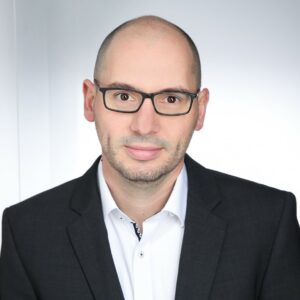
What QC and AI experience do you provide?
"As a Data Scientist, my focus is on the collection and processing of data and the resulting knowledge generation. In this context, we at Zeppelin use a wide variety of methods from the field of Machine Learning. The focus is always on the integration and implementation of the latest developments, with the aim of providing colleagues with the best possible support through data-based, digital solutions. We consider the field of quantum computing to be a promising future technology and want to build up corresponding know-how within the framework of AutoQML."
What is your specific role in the project?
"In the project, I take over several roles. I am the project manager of AP 6 (short for: Work Package) and fill this role internally at Zeppelin. In addition, I am also responsible for the technical implementation, which I also carry out myself to a large extent."
What added value do you expect from the project content?
"The first added value is the transfer of knowledge and experience between the industrial partners and research institutes participating in the project. Another added value is the intensive exposure to different AutoML methods, which leads to a deep understanding in this area. Finally, the AutoQML project enables us to better understand and evaluate the applicability of quantum computing and QML methods."
Henning Krause, Research Associate at GFT Integrated Systems GmbH
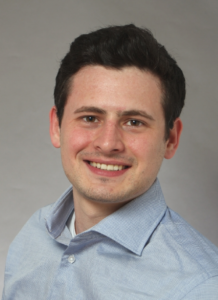
What QC and AI experience do you provide?
"The GFT Group has Machine Learning know-how from previous industry collaborations in a wide variety of industry-specific domains. I am the contact person for the project at GFT Integrated Systems GmbH and have been involved in classical ML with a focus on image processing in my master's degree in computer science and in postgraduate stations. As there is no expertise in quantum computing at GFT so far, this project aims to specifically develop strategic knowledge to identify the potential and application areas of quantum computing and to be able to use it for the future."
What is your specific role in the project?
"GFT acts as one of the two software houses in the AutoQML project. Their task is to ensure the software-side connection and conceptual implementation of the use cases of the application partners. In doing so, the necessary extensions to the software components and their configuration are implemented by myself. For further questions, for example which algorithms or libraries should be used, I try to bring in my expertise from the ML area."
What added value do you expect from the project content?
"From the AutoQML project, GFT hopes to expand its expertise with AutoML techniques and to enter the field of quantum computing. In addition, application cases and solution approaches for new and existing GFT customers are to emerge from the cooperation with the project partners. What interests me personally about this project is the application-oriented use of AutoML and, of course, the exciting insight into the future technology of quantum computing."
Dr. Andreas Röpnack, Senior Consultant at USU Software AG
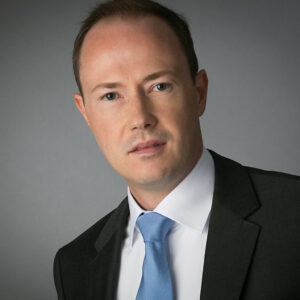
What QC and AI experience do you provide?
"USU Software AG has many years of experience and excellent expertise in the field of AI, from the needs-based analysis of a use case to its concrete implementation. This applies to both industry and research projects. USU has practical experience in the AutoML area. This experience was gained from the application of AutoML frameworks in two research projects. In these projects (FabOS and SmartMMI), the application of AutoML procedures played a central role. We bring this expertise and experience from the field of AI and AutoML to the AutoQML project."
What is your specific role in the project?
"In AutoQML, we are working very closely with our project partners in several work packages (AP’s) towards a joint, successful development of an AutoML+quantum computing framework. We are particularly involved regarding AP4 "Developer suite, tools and components". USU is in the lead in this AP. The goal is to extend the idea of AutoML with quantum computing together with our project partners and to integrate it into an existing AutoML framework. The goal is to merge this work into an AutoQML framework. In addition, in the use case with KEB, we are directly applying and verifying the AutoQML approach developed in AP4."
What added value do you expect from the project content?
"As USU, we expect the project to provide us with important insights into the practicality and applicability of AutoML and quantum computing for future use cases and application scenarios. USU is convinced that AutoML frameworks will play an important role in the future. However, a prerequisite for this is the ability to apply AutoML methods in a performant manner, and this is precisely where the AutoQML project comes in and enables new insights to be gained in this regard."
